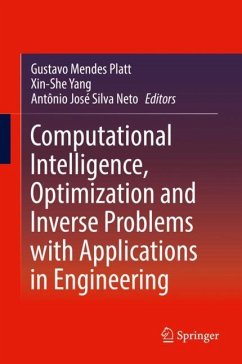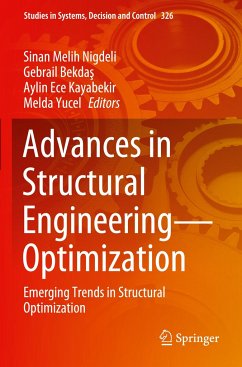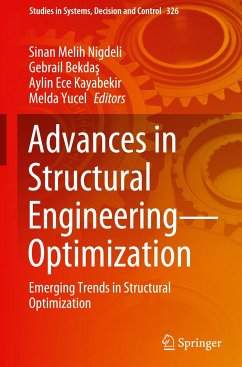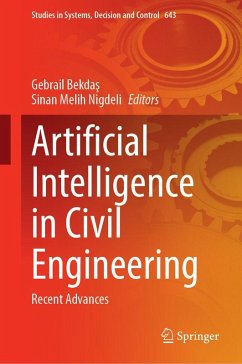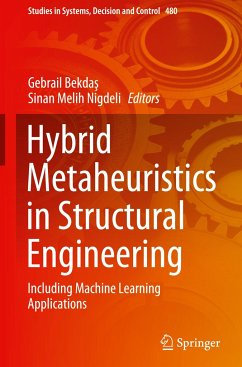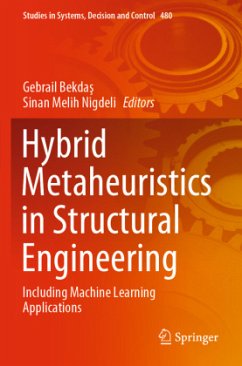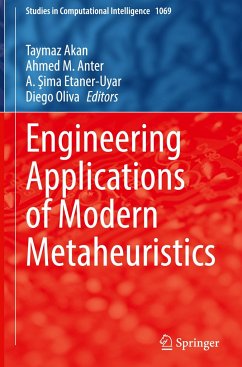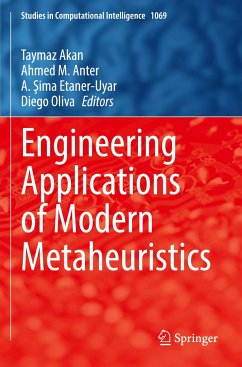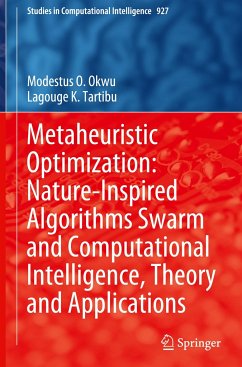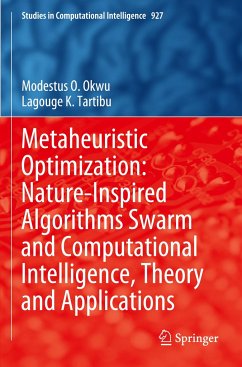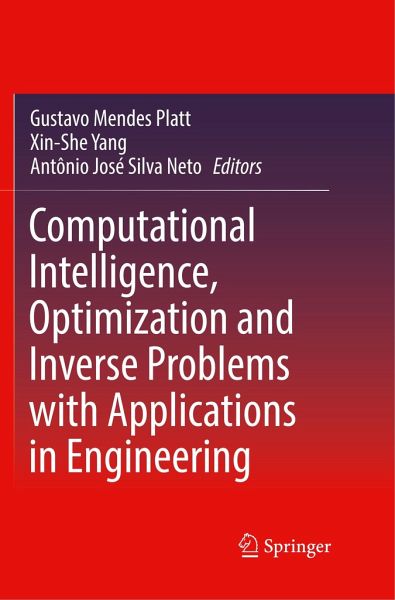
Computational Intelligence, Optimization and Inverse Problems with Applications in Engineering
Versandkostenfrei!
Versandfertig in 6-10 Tagen
76,99 €
inkl. MwSt.

PAYBACK Punkte
38 °P sammeln!
This book focuses on metaheuristic methods and its applications to real-world problems in Engineering. The first part describes some key metaheuristic methods, such as Bat Algorithms, Particle Swarm Optimization, Differential Evolution, and Particle Collision Algorithms. Improved versions of these methods and strategies for parameter tuning are also presented, both of which are essential for the practical use of these important computational tools. The second part then applies metaheuristics to problems, mainly in Civil, Mechanical, Chemical, Electrical, and Nuclear Engineering. Other methods,...
This book focuses on metaheuristic methods and its applications to real-world problems in Engineering. The first part describes some key metaheuristic methods, such as Bat Algorithms, Particle Swarm Optimization, Differential Evolution, and Particle Collision Algorithms. Improved versions of these methods and strategies for parameter tuning are also presented, both of which are essential for the practical use of these important computational tools. The second part then applies metaheuristics to problems, mainly in Civil, Mechanical, Chemical, Electrical, and Nuclear Engineering. Other methods, such as the Flower Pollination Algorithm, Symbiotic Organisms Search, Cross-Entropy Algorithm, Artificial Bee Colonies, Population-Based Incremental Learning, Cuckoo Search, and Genetic Algorithms, are also presented. The book is rounded out by recently developed strategies, or hybrid improved versions of existing methods, such as the Lightning Optimization Algorithm, Differential Evolutionwith Particle Collisions, and Ant Colony Optimization with Dispersion - state-of-the-art approaches for the application of computational intelligence to engineering problems.
The wide variety of methods and applications, as well as the original results to problems of practical engineering interest, represent the primary differentiation and distinctive quality of this book. Furthermore, it gathers contributions by authors from four countries - some of which are the original proponents of the methods presented - and 18 research centers around the globe.
The wide variety of methods and applications, as well as the original results to problems of practical engineering interest, represent the primary differentiation and distinctive quality of this book. Furthermore, it gathers contributions by authors from four countries - some of which are the original proponents of the methods presented - and 18 research centers around the globe.





